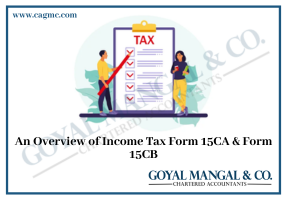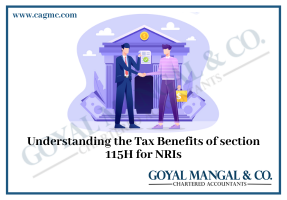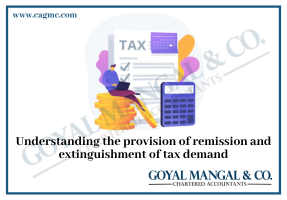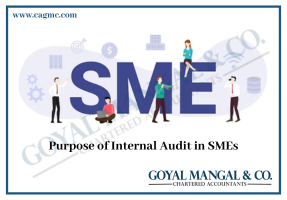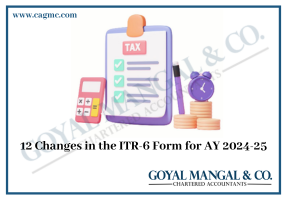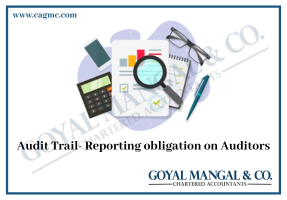
The first image that comes to mind when we hear the word “freelancer” is of a person who is his/her own employer and has the freedom to manage time at will. But Everything Has a Price, and so does the Pleasure of Freelancing! In this blog we will demystify the process of how do Freelancers file Income Tax Returns. In today’s dynamic work landscape, freelancers play a significant role, and understanding the tax obligations that come with this flexible career choice is essential. This blog aims to guide freelancers through the process of ITR filing, shedding light on the specific considerations and steps they need to follow to ensure compliance with tax regulations. By the end of this guide, you should have a clear understanding of how do freelancers file Income Tax Returns.
|
Table of Contents |
What is ‘Freelancing’ according to Income Tax Regulations?
According to India’s Income Tax Laws, any income generated through the application of manual or intellectual skills is deemed “profit and gains from business and profession.” Freelancing is regarded as a business and profession for tax purposes.
Freelancers may be blog consultants, software developers, content writers, web designers, instructors, fashion designers, etc. Due to multiple sources of income, the income tax registration process for freelancers may be slightly more difficult.
Taxation for freelancers
Freelancers must pay income tax at the applicable rates. Depending on the tax system chosen by the freelancer, deductions may also be claimed. They may also register taxes under Section 44ADA of the Income Tax Act 1961’s Presumptive Taxation Scheme. If they choose a presumptive taxation scheme, they can pay tax on only half of their cumulative annual income if their total income is less than Rs. 50 lakhs for the year.
Following are the income tax rates applicable for freelancers below 60 years of age as per old tax regime and new tax regime.
| Income Tax Slab | Old Tax Regime | New Tax Regime | ||
| Rs 0 – Rs 2,50,000 | 0% | 0% | ||
| Rs 2,50,000 – Rs 3,00,000 | 5% | 0% | ||
| Rs 3,00,000 – Rs 5,00,000 | 5% | 5% | ||
| Rs 5,00,000 – Rs 6,00,000 | 20% | 5% | ||
| Rs 6,00,000 – Rs 7,50,000 | 20% | 10% | ||
| Rs 7,50,000 – Rs 9,00,000 | 20% | 10% | ||
| Rs 9,00,000 – Rs 10,00,000 | 20% | 15% | ||
| Rs 10,00,000 – Rs 12,00,000 | 30% | 15% | ||
| Rs 12,00,000 – Rs 12,50,000 | 30% | 20% | ||
| Rs 12,50,000 – Rs 15,00,000 | 30% | 20% | ||
| More than Rs 15,00,000 | 30% | 30% | ||
Depending on the freelancer’s chosen tax regime, tax deductions may be claimed. Freelancers can utilize the Presumptive Taxation Scheme under Section 44ADA of the Income Tax Act, 1961 and pay tax on freelance income on only half of their aggregate annual income, provided that their total income for the year does not exceed Rs. 50 lakhs.
If the aggregate annual income exceeds 1 crore rupees, a business income tax audit is required.
10% TDS is applicable whenever a freelancer makes payments to professionals that exceed Rs. 30,000 (cumulatively during the fiscal year). Under the Presumptive Taxation Scheme, freelancers can register their income tax returns using Form ITR-4.
Freelancers who do not utilize the Presumptive Taxation Scheme may submit their tax returns using the ITR-3 form, which is applicable for income from a business or profession.
ITR form applicable to freelancers
ITR-3 or ITR-4 is the income tax return that freelancers and consultants must complete and submit. ITR-3 applies to business and professional income. Beginning from AY 2017-18 (FY 2016-17), professionals can elect presumptive taxation and report 50% of their aggregate receipts as income by filing ITR-4.
Income Tax Filing Process for Freelancers
The following are the simple measures freelancers in India must take to file their taxes:
- Visit the Income tax e-filing portal
- Complete each section of the ITR-4 or ITR 3 form. This includes providing general information, aggregate total income, deductions, and taxable total income, details of income from business and profession, details of TDS (tax deducted at source), and details of advance tax and self-assessed tax.
- Calculate your taxes with Form 26AS. For tax savings, deductions and exemptions can be claimed under various sections. Any expenses incurred solely and entirely for freelance work performed during the tax year may also be claimed, such as property rent, repair expenses,
Available deductions for Freelancers
Under Sections 80C to 80U, freelancers can claim deductions from their income. Therefore, freelancers can claim the following deductions when submitting ITR:
- Section 80C: Deductions on various investments such as life insurance premiums, ELSS, payments made towards the principal sum of a home loan, SSY, NSC, SCSS, payment made towards pension plans, NPS payment, etc.
- Section 80D: Deduction on medical insurance premium
- Section 80E: Interest on education loan
- Section 80EEA: Interest on home loan for first-time homeowners
- Section 80G: Income tax benefits towards donations for social causes
- Section 80GG: Income tax deduction on house rent paid
- Section 80TTA: Interest on savings accounts
- Section 80U: Deduction for disabled individuals
Advance Tax as a freelancer
If the freelancer’s annual tax liability exceeds Rs. 10,000, he or she must pay tax in advance each quarter. Here is a straightforward method to pay tax in advance:
- Go to the IT department’s network for tax information
- Proceed with option challan 280Fill in your personal information – choose (0021) income tax other than companies,
- Choose the tax payment type, choose the correct assessment year, and provide your address, PAN, and other contact information along with your chosen payment method.
- Verify the information before proceeding Pay the tax and obtain a receipt Keep the receipt safe so that you can provide the same information when submitting your tax return.
Knowing the tax rules and the advantages of presumptive tax schemes can assist freelancers in reducing their tax liability and filing their tax returns with simplicity.
Final words
As freelancers continue to make unique contributions to the workforce, comprehending the Income Tax Return (ITR) filing process becomes crucial. Freelance work is not only creatively rewarding, but also carries with it distinct financial obligations. Freelancers must navigate a maze of financial complexities when filing their ITR, from documenting diverse income sources to claiming eligible deductions. By adhering to these guidelines, freelancers can ensure tax law compliance and maintain a transparent financial record. Adopting these practices is essential for freelancers to focus on what they do best while efficiently meeting their tax obligations. In this blog, we’ve covered the process of how do freelancers file Income Tax Returns.

